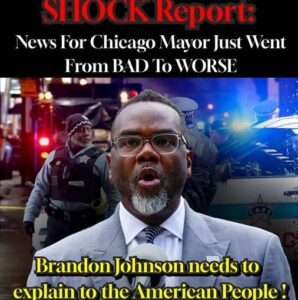Eight Dead, Dozens Wounded in Chicago Labor Day Shootings as Political Divide Widens

Chicago, IL – What should have been a weekend of family gatherings and barbecues turned tragic in Chicago, where at least 58 people were shot and eight lost their lives during Labor Day festivities.
The violence, spread across multiple neighborhoods and incidents, left behind shattered families and communities struggling with grief. Names of the victims have not yet been made public, but the toll is already clear: parents without children, children without parents, and neighborhoods scarred once again by gunfire.
Politics Clash With Reality
The bloodshed unfolded against a backdrop of mounting political tension. President Donald Trump renewed his call to send federal forces—and potentially the National Guard—into Chicago to combat the city’s persistent gun violence.
But Mayor Brandon Johnson has drawn a firm line. Last week, he signed an executive order preventing local police from cooperating with federal patrols, rejecting what he called “the militarization of our neighborhoods.”
“We will protect our Constitution, we will protect our city, and we will protect our people,” Johnson declared. The White House pushed back, accusing Democrats of placing politics above public safety.
Beyond the Headlines
Behind the sharp exchanges at press conferences lies a deeper, more devastating reality: lives stolen in an instant. Every statistic represents a person whose absence will be felt at dinner tables, in classrooms, and on front porches.
Community leaders stress that Chicago’s crisis cannot be solved by rhetoric alone. “A city is only as strong as the compassion it fosters,” one local faith leader said, urging residents and officials alike to prioritize safety and dignity over political rivalry.
A Crossroads for the City
Gun violence in Chicago is tragically familiar, but for each grieving family, the pain is brand new. Real change, advocates argue, will require more than policy debates—it will take cooperation, empathy, and sustained investment in the lives of everyday Chicagoans.
Chicago has endured hardship before, and many believe it can again. But the city now stands at a crossroads: will leaders continue to spar over power, or will they unite with residents in a shared commitment to ensure that no holiday ends in such devastating loss?